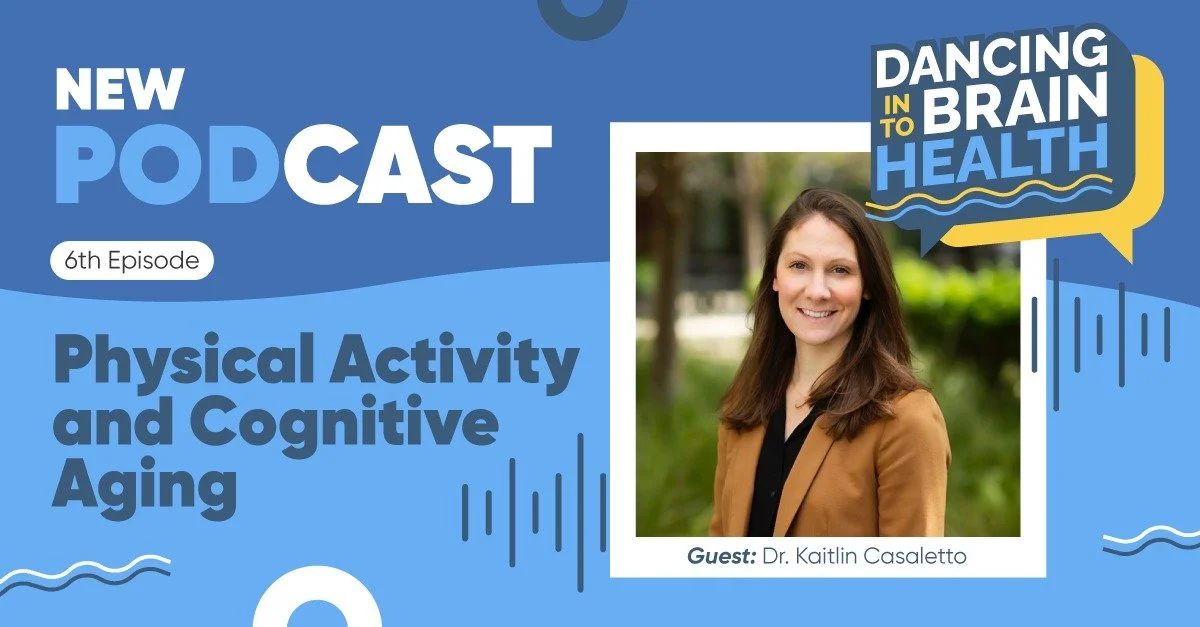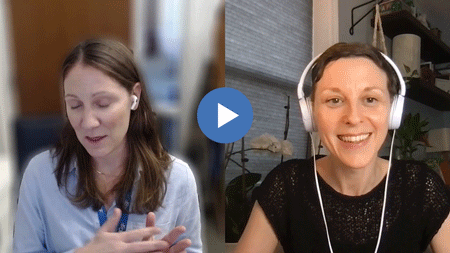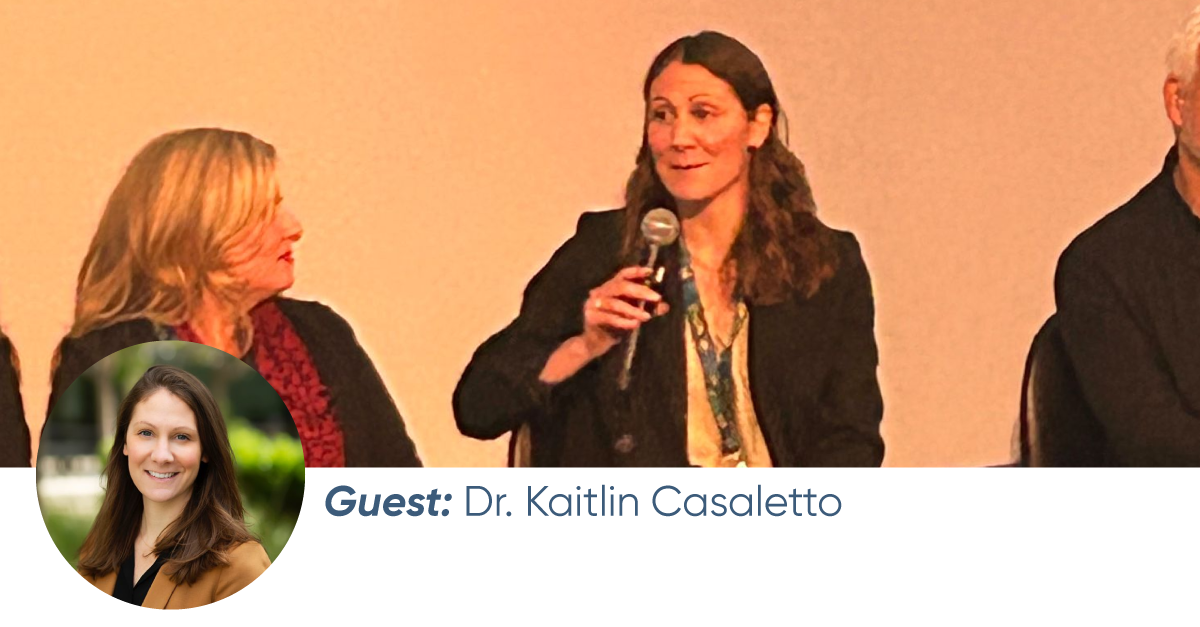Dancing into Brain Health (S1 Ep6):Physical Activity and Cognitive Aging w/ Dr. Kaitlin Casaletto
Physical activity is one of the key actions we can introduce into our lifestyles producing significant benefits on our lifelong health. Researchers and public health officials advise that engaging in physical activity across the life course influences our health in multiple ways from prevention and management of noncommunicable diseases such as cardiovascular diseases, cancer and diabetes, reducing symptoms of depression and anxiety, and improving overall well-being.
When considering brain health and cognitive aging, the Lancet Commission lists physical activity as one of the 14 modifiable risk factors that contribute to lifelong reduction of dementia risk by up to 45%. Whereas the impact of physical activity on brain health is undeniable, significant variability exists in the understanding of the impact on diverse demographics and specific mechanisms related to cognitive aging and among diverse forms of dementia.
Our guest this episode of the Dancing into Brain HealthPodcast is neuropsychologist and researcher, Dr. Kaitlin Casaletto. Dr. Casaletto's research program aims to prevent cognitive decline by identifying the biological and behavioral drivers of cognitive resilience with age.
Together we discuss the latest research on how engaging inphysical activity can protect our brains as we age and explore new avenues of research and practice on the horizon.
Learn more about Dr. Kaitlin Casaletto here or follow her on LinkedIn.
Read some of Dr. Casaletto’s work:
Late-life physical activity and cognitive resilience:
“Late-life physical activity relates to brain tissue synaptic integrity markers in older adults”
Physical activity correlations with progression amongpeople living with Frontotemporal Dementia:
“Active lifestyles moderate clinical outcomes in autosomaldominant frontotemporal degeneration”
Sex differences in cognitive aging:
“Sexual dimorphism of physical activity on cognitive aging:Role of immune functioning”
Interested to learn more about Dr. Casaletto and colleagues’research on sex-specific brain health? Check out Ann S. Bowers Women's Brain Health Initiative to access educational videos, learn about the latest research and reach out to participate in upcoming studies.
This episode of Dancing into Brain Health was edited andproduced by me, Magda Kaczmarska and Hilary Brown-Istrefi. The music for this show is the title cut from the album, Critical Path by Joe Venegoni and Carl Weingarten.
Highlights from the episode:
“So dance, it's got everything. What I love about dance is it has the physical movement that we know the brain loves, cognitive stimulation, which the brain also loves, and social engagement, which is actually, I think, one of the number one modifiable risk factors for dementia. So it's got like the trifecta happening, so it’s a no-brainer to me that this would be good for the brain, full stimulation.”
ABOUT DANCING INTO BRAIN HEALTH PODCAST
Join host Magda Kaczmarska, dancer, researcher, Atlantic Fellow for Equity in Brain Health and executive director of arts and health nonprofit, DanceStream Projects, in uncovering the interconnections of dance, brain health and community. Each episode Magda brings together leading researchers, artists, advocates and thought leaders to illuminate the magical interconnections of dance and brain health and explore their influence on all aspects of our lives.
* New Episodes every month! *
Follow us on IG: @ dancestream_projects or email us at: magda@dancestreamprojects.com



